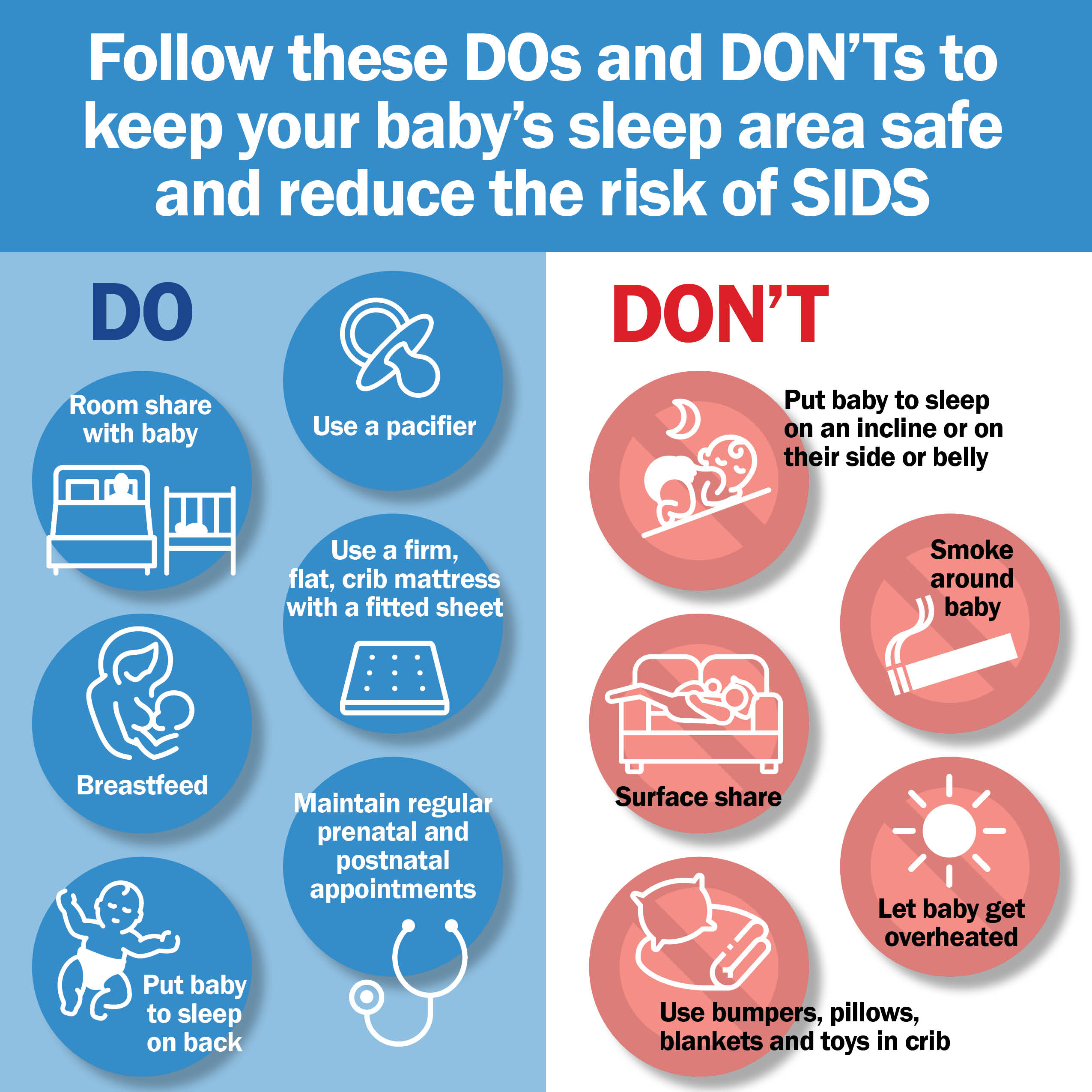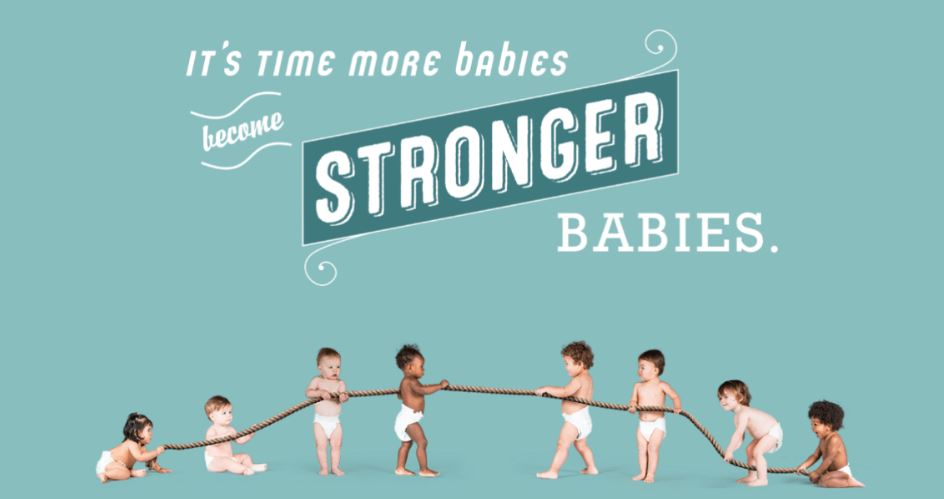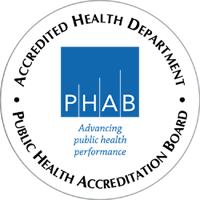Safe Sleep
A baby requires sleep. Lots of it. It’s typical for an infant to sleep up to 16-17 hours a day. How babies sleep is just as important as the amount of sleep they get.
- A safe sleep environment can help reduce the risks of SIDS and other sleep-related causes of infant death, such as suffocation.
- Remember to room share and not surface share, clean out extra items from the crib, put baby to sleep on their back on a firm and flat crib or pack 'n play.
- Visit our Safe sleep now for a "Strong Baby" later page to learn more about how to practice safe sleep for your baby.


Immunizations
Immunizations are vital in protecting our children from many potentially serious diseases. Nationally, childhood immunizations programs have resulted in the elimination or reduction of many diseases including measles, chickenpox, HIB meningitis and polio. The Centers for Disease Control and Prevention (CDC) estimates that immunizations prevent between 2 to 3 million deaths every year.
- Once a baby is born, she will start to get her own vaccines for protection against diseases (even before she leaves the hospital after birth, it is recommended she get the first of an eventual three doses of the vaccine that protects against Hepatitis B).
Visit our immunizations page to see what vaccines you can receive at KCHD.
Strong Baby Campaign

Improving the well-being of mothers, infants and children is an important community health goal for the Knox County Health Department. Their well-being determines the health of the next generation and can help predict future public health challenges for families, communities and the health care system. The Strong Baby project is an effort to promote healthier families and infants.
Visit StrongBabyKnox.org to learn more about how to make a baby a "Strong Baby" with topics including: breastfeeding, safe sleep, immunizations, prenatal care, smoking cessation, annual check-ups, healthy eating, and full-term babies.

Healthy Kids, Healthy Families

1. Oral Health
- Good oral care starts before teeth appear. The AAP recommends that, after a feeding, parents wipe a baby’s gums with a soft washcloth or a baby toothbrush using water only (no toothpaste).
- When your baby's teeth appear, brush twice a day with an infant toothbrush and fluoridated toothpaste. Start flossing when two of his teeth touch each other. Ask your dentist about techniques and schedules. Brush and floss just before bedtime.
- KCHD has a Dental program where we provide basic dental care for children and emergency dental services for eligible adults in Knox County. Visit our Dental page to learn more.
2. WIC
- Women, Infants & Children (WIC) is a special supplemental nutrition program which provides services to pregnant women, new mothers, infants and children up to their 5th birthday based on nutritional risk and income eligibility.
3. Parents As Teachers
This is a prenatal to Kindergarten program that helps parents learn how to be their child’s first and most influential teacher. This evidence-based home visiting model is designed to ensure young children are healthy, safe and ready to learn.
4. CHANT
Do you need assistance with rent, utilities, clothing, diapers, domestic violence, children with special healthcare needs, depression, unsafe sleep environments or something similar? CHANT helps get you in touch with the resources your family needs. CHANT services are available for adolescent and adults that are prenatal or postpartum, individuals up to age 21, and any family with children 0 up to age 21 years old.



Click here to leave a comment or concern.